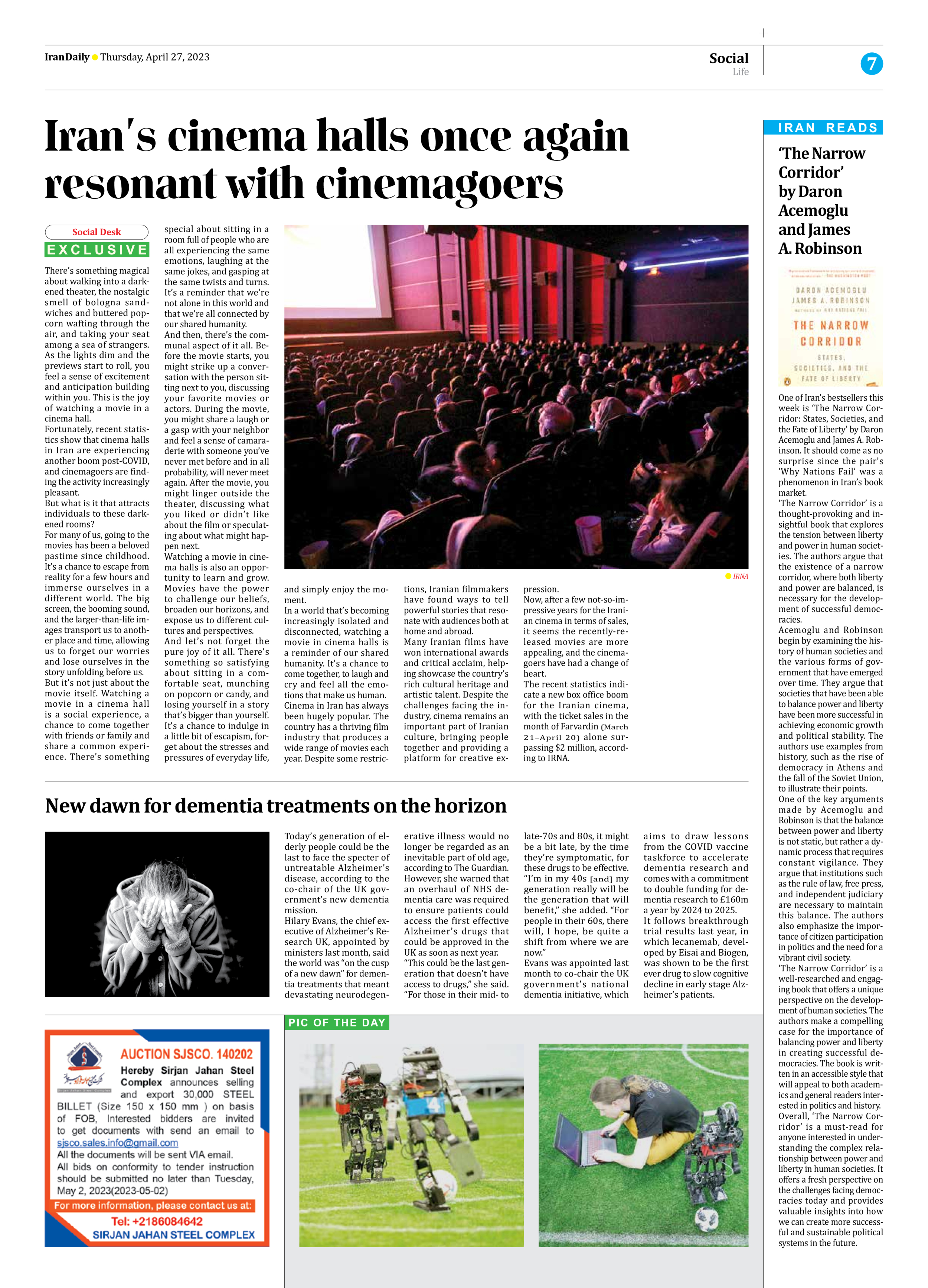
IRAN READS
‘The Narrow Corridor’ by Daron Acemoglu and James A. Robinson
One of Iran’s bestsellers this week is ‘The Narrow Corridor: States, Societies, and the Fate of Liberty’ by Daron Acemoglu and James A. Robinson. It should come as no surprise since the pair’s ‘Why Nations Fail’ was a phenomenon in Iran’s book market.
‘The Narrow Corridor’ is a thought-provoking and insightful book that explores the tension between liberty and power in human societies. The authors argue that the existence of a narrow corridor, where both liberty and power are balanced, is necessary for the development of successful democracies.
Acemoglu and Robinson begin by examining the history of human societies and the various forms of government that have emerged over time. They argue that societies that have been able to balance power and liberty have been more successful in achieving economic growth and political stability. The authors use examples from history, such as the rise of democracy in Athens and the fall of the Soviet Union, to illustrate their points.
One of the key arguments made by Acemoglu and Robinson is that the balance between power and liberty is not static, but rather a dynamic process that requires constant vigilance. They argue that institutions such as the rule of law, free press, and independent judiciary are necessary to maintain this balance. The authors also emphasize the importance of citizen participation in politics and the need for a vibrant civil society.
‘The Narrow Corridor’ is a well-researched and engaging book that offers a unique perspective on the development of human societies. The authors make a compelling case for the importance of balancing power and liberty in creating successful democracies. The book is written in an accessible style that will appeal to both academics and general readers interested in politics and history.
Overall, ‘The Narrow Corridor’ is a must-read for anyone interested in understanding the complex relationship between power and liberty in human societies. It offers a fresh perspective on the challenges facing democracies today and provides valuable insights into how we can create more successful and sustainable political systems in the future.







